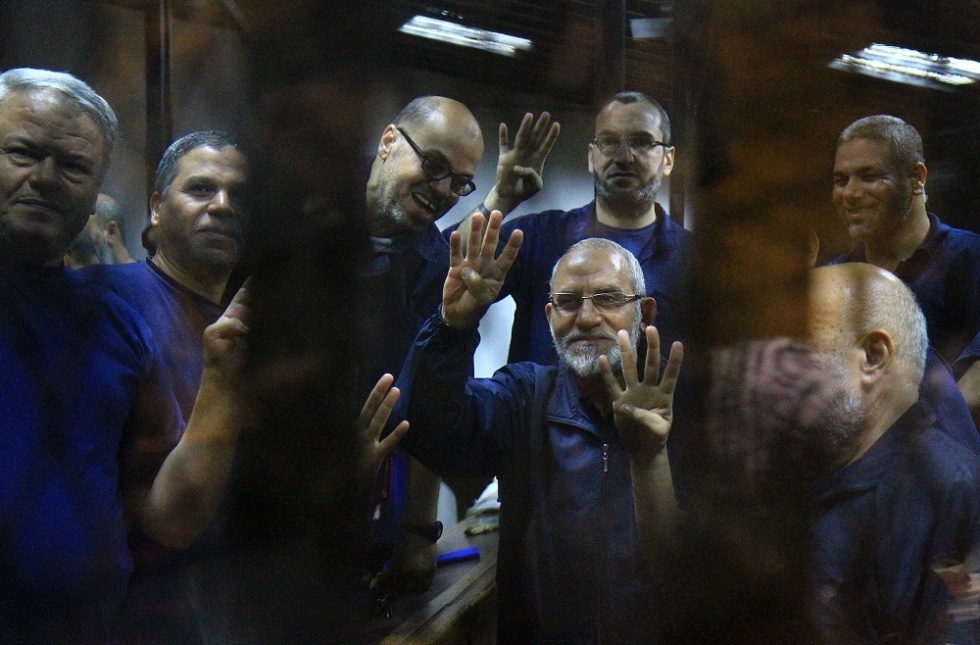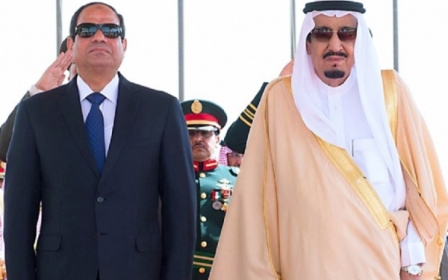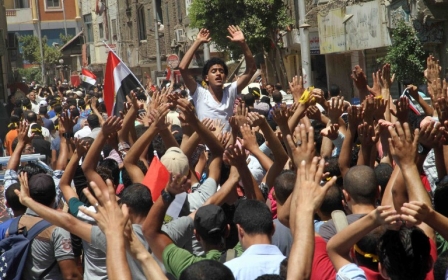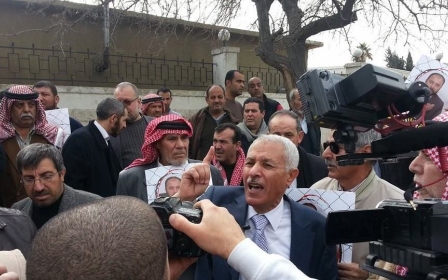Death sentences against Brotherhood's Badie and 13 others confirmed in Egypt

An Egyptian court on Saturday sentenced 14 people, including Muslim Brotherhood leader Mohamed Badie, to death for violence-related charges.
The sentences have been handed down previously, but have now been upheld.
The court also slapped 25 other defendants, including Egyptian-American activist Mohamed Soltan, with life sentences for charges of forming what came to be known as the ‘Rabaa Operations Room’ that prosecutors claim gave orders to protesters at the Rabaa Al-Adaweya sit-in staged in support of the ousted democratically-elected Muslim Brotherhood candidate Mohamed Morsi.
The prosecutors allege that this group tried to “spread nationwide chaos” and were "masterminding a plot to sow chaos and storm and set fire to police stations, state institutions, public and private property and churches".
Prosecutors also accused the defendants of "coordinating with e-committees to disseminate doctored images of people killed and wounded protesters."
Soltan's health is believed to be extremely poor due to his long-standing hunger strike which he has either held partially or fully for much of his detention. His father Salah Soltan was among the 11 detainees sentenced to death.
While estimates on the casualty figures vary from a few hundred, Human Right Watch has said that at least 1,000 people were killed during the police raids on the sit-in in August 2013. A further 150 are believed to have been killed in Giza's Nahda Square.
The dispersal came only a few weeks after Morsi, Egypt's first freely elected leader, was forcibly removed from office by the army following massive opposition demonstrations against his one-year presidency.
The Egyptian government then launched a sweeping crackdown on Morsi's supporters, in which the violent dispersal of the protest camps is widely seen as a turning point. Since then hundreds of Brotherhood leaders and supporters have been sentence to death, often in mass trials that have been widely condemned by the international community. Tens of thousands have also been arrested. Waves of liberal and secular activists, who originally backed Morsi’s removal, have also been targeted and given long sentences.
Several hours after the announcement about the death penalty, Egyptian prosecutors said that they would also be referring 64 civilians to military tribunal for planning attacks against security forces and military and civilian facilities.
The public prosecution said in a statement that 64 members of the outlawed Muslim Brotherhood had been referred to military court for "committing terrorist crimes against public and police facilities, planting bombs and setting a number of buildings ablaze".
Civil prosecutors are legally permitted to refer cases to the military prosecution, especially when it comes to vandalizing public properties.
In October, President Abdel-Fattah al-Sisi approved a law that opened the door for referring violations against state institutions to military courts.
Middle East Eye propose une couverture et une analyse indépendantes et incomparables du Moyen-Orient, de l’Afrique du Nord et d’autres régions du monde. Pour en savoir plus sur la reprise de ce contenu et les frais qui s’appliquent, veuillez remplir ce formulaire [en anglais]. Pour en savoir plus sur MEE, cliquez ici [en anglais].




